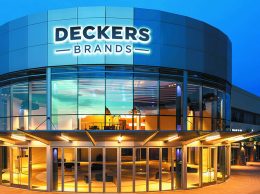HP jumps into the cloud with Eucalyptus buy
IN THIS ARTICLE
- South Coast Topic
- Stephen Nellis Author
By Stephen Nellis Friday, September 19th, 2014
While it’s unclear whether the rise and sale of Goleta-based Eucalyptus Systems to tech giant Hewlett-Packard Co. was a major financial success for its investors, one thing is certain: The South Coast is now on the map as having proved the viability of open-source hybrid cloud computing and will have contributed an important component to HP’s cloud strategy going forward.
HP said on Sept. 11 that it had acquired Eucalyptus and would put Marten Mickos, the Goleta firm’s CEO, in charge of its cloud unit, reporting directly to Hewlett-Packard CEO Meg Whitman. The financial terms weren’t disclosed, but Bloomberg News cited unnamed sources close to the deal who said the price was less than $100 million.
Founded by UCSB computer science professor Rich Wolski and six others, Eucalyptus focuses on open-source cloud operating systems that can interact seamlessly with commercial systems from Amazon and others. It’s useful when a company needs to have one part of its cloud infrastructure under its direct control but still wants to leverage publicly available services. The firm raised $56 million from investors such as Institutional Venture Partners, Benchmark Capital, BV Capital and New Enterprise Associates. It has 75 employees, with about a third based in Santa Barbara.
HP has been building out a cloud offering called HP Helion. Notably, that system has been built around OpenStack, a Eucalyptus competitor that gained traction and siphoned off users and customers from Eucalyptus. Critically, HP’s Helion systems aren’t compatible with public cloud providers such as Amazon. Eucalyptus will provide that ability.
“We’re bringing on board the whole company — all the software, all the people, everything,” Mickos told the Business Times. “Eucalyptus specialized in compatibility with public clouds, and that is what we’re bringing to the HP product.”
HP’s transition
HP is in the midst of a major transition. The Palo Alto firm plans to lay off as many as 50,000 people as its revenues have shrunk more than 12 percent from their $127 billion peak. The company has been moving away from consumer-oriented lines of business and is hoping to secure more enterprise sales, pitting it against firms such as IBM and RedHat for big corporate projects.
“The main idea here is HP has an ability to produce an entire cloud for you — hardware, software, services, even hosting it for you,” Mickos said. “If you say, ‘I’d like to have a cloud with 10,000 servers. Who can do that?’ There are not that many companies. It’s a unique strength of HP that you have this amazingly complete set of everything you need. Sure, people have seen [HP] as a bit old-school lately, but if you look closely, there’s a lot of innovation.”
To some extent, the HP deal is a marriage of two firms that have made missteps as cloud computing has rapidly evolved. While other tech giants probed the space early, HP didn’t launch a public cloud until 2012, earning it ridicule as a me-too effort in the satirical newspaper The Onion under the headline “HP offers ‘that cloud thing everyone is talking about.’ ” After a strong start in 2009, Eucalyptus struggled against the competition and saw defections: Co-founder Wolski returned to his academic post at UCSB, early executive Woody Rollins left to helm Santa Barbara-based AppScale, and sales executive Saïd Ziouani went on to lead Ansible, which is split between teams in Santa Barbara and North Carolina.
“It’s fair to say [HP was] a little bit late to the game, but I think it’s fair to say that those who were early took a few bruises because they were too early. And I think it’s fair to say Eucalyptus was a little too early,” Mickos said. “But if you want to be the world’s leading source of open-source clouds, you should do what HP is doing now.”
The fate of the new HP effort hinges to a large extent on whether cloud computing comes to big businesses in general the same way it has revolutionized software companies.
There are many corporate clients that have big computing needs but whose business isn’t software, and they have so far been less enthusiastic about embracing the cloud than their code-oriented counterparts.
Mickos believes that will change. “It’s because the people there are older. I’m not saying that as an age discrimination thing. At a certain point, you stop learning and start defending your chosen methods and models. For every shift, you need young people, because they don’t have that legacy,” Mickos said.
Mickos himself will move to Palo Alto, but he said the Goleta location will remain after the transition to HP. “We have a strong base in Goleta, and we will be hiring more people,” Mickos said. “We will be part of a global organization, so we will be collaborating with teams globally.”












